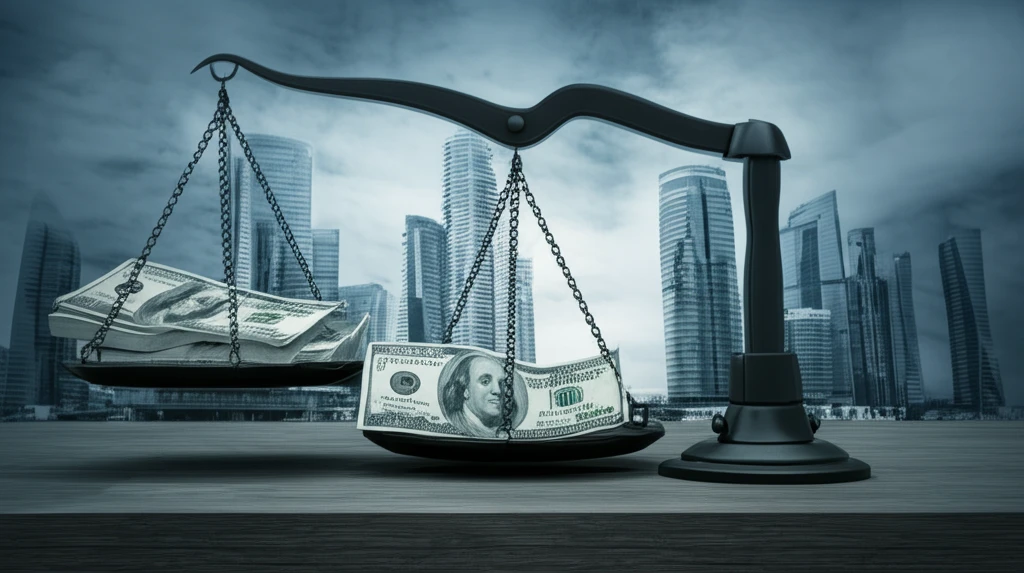
Tax Inequity: How Hidden Biases in the System Affect You
"Uncover the subtle ways tax inequality impacts different groups, and what it means for fairness in the system."
Taxes are the lifeblood of any modern society, funding essential services from education and healthcare to infrastructure and national defense. Ideally, a tax system should be fair, transparent, and efficient, distributing the burden equitably across all citizens. However, the reality is often far more complex. Hidden biases, systemic inequalities, and the subtle influence of special interests can create a tax landscape where some individuals and groups shoulder a disproportionate share of the burden, while others benefit from loopholes and exemptions.
The concept of tax equality, a cornerstone of republican ideals, has long been debated by legal scholars and economists. However, the sociological aspects of tax inequality often receive less attention. It's not just about whether a new tax complies with constitutional principles or how contributions are distributed among income brackets. A sociological lens examines the social mechanisms that create disparities among taxpayers.
Instead of merely measuring the impact of tax policies on wealth distribution, it is more insightful to explore how inequalities are produced from the very design and implementation of these policies. This perspective seeks to uncover the subtle yet powerful ways in which the tax system can perpetuate and even exacerbate existing social and economic divisions.
How Tax Policies Are Skewed: The Subtle Influences at Play

In theory, tax policies are shaped by elected officials acting in the best interests of the nation. In practice, however, the process is subject to a multitude of influences. Special interest groups, lobbyists, and powerful corporations often exert considerable pressure on lawmakers, shaping legislation to benefit their own bottom lines. This influence can be subtle, taking the form of campaign contributions, expert testimony, or carefully crafted research reports.
- Expert Domination: Tax law has become increasingly complex, requiring specialized knowledge that average citizens often lack. This creates an opportunity for experts, who may be beholden to special interests, to shape policy.
- Lobbying and Special Interests: Powerful corporations and wealthy individuals employ lobbyists to advocate for their interests in the tax code. These efforts can result in loopholes and exemptions that disproportionately benefit the wealthy.
- Lack of Transparency: Tax policy decisions are often made behind closed doors, with little public input or oversight. This lack of transparency makes it difficult to hold lawmakers accountable for their decisions.
Toward a More Equitable Tax System
Ultimately, addressing tax inequality requires a multifaceted approach. Greater transparency in policymaking, stricter regulations on lobbying, and a more progressive tax structure can all help to level the playing field. It also requires a shift in perspective, recognizing that tax policy is not simply a technical exercise but a reflection of our values and priorities as a society. The recent hostility towards taxes is a product of perceived inequalities among taxpayers. Rather than viewing taxpayers as a homogeneous group, sociological insight reminds us that tax confidence is not universal but structured by social position and differential treatment under fiscal law.
